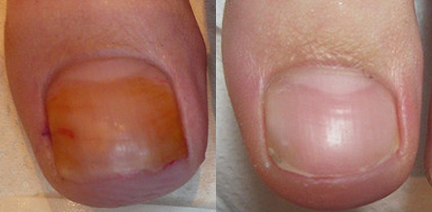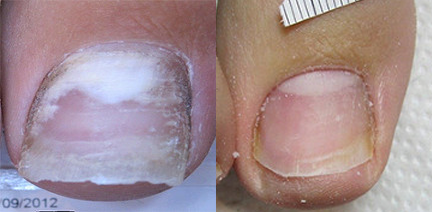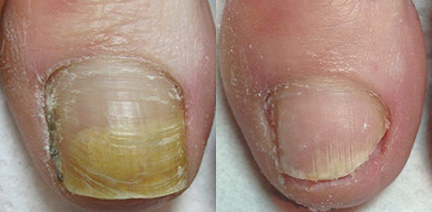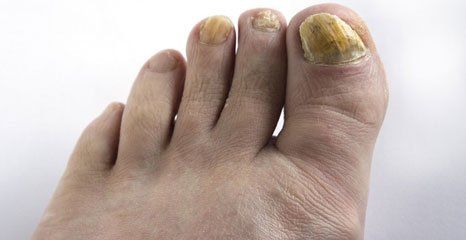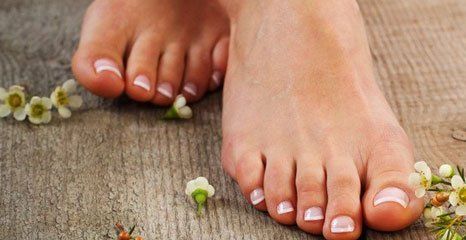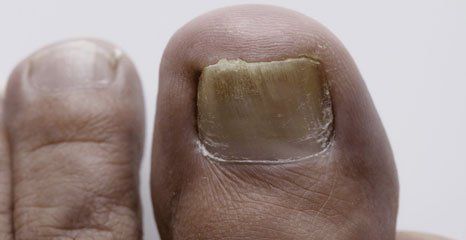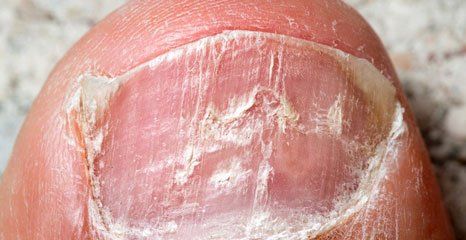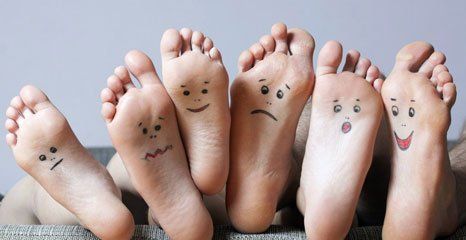Fungal nail treatments in Staines-upon-Thames and Whitton
Cold Laser for Fungal Nails and Skin (athletes’ foot):
- 100% Safe Laser and 95% success rate
- Treatment with NO Side Effects.
- Minimal Discomfort and Fast Treatment Time.
- NO Downtime Required.
- Safe for Adults as well as Children
How Does Cold Laser Work?
The laser does not cause any damage to the nail bed or surrounding skin. It encourages blood circulation in the area and is designed to instil energy within local cells.
Cause of Fungi Infections:
The factors that make humans more susceptible to fungal infections include:
- Everyday damage to the nail plate allowing fungi to enter the nail bed. This can happen by stubing or knocking your toe or finger
- Medical conditions such as poor circulation, diabetes and psoriasis
- Cosmetic nail treatments or wearing artificial nails
- Wearing ill-fitted or improper shoes.
- Use of shared public recreation facilities (i.e. swimming pools or shared cleaning facilities)
- Poor personal hygiene
Do You Have Fungal Nails and/or Athlete's Foot?
The symptoms depend on the extent of infection. The usual symptoms are:
- Discoloured nails, White, Yellow or Brown
- Thickened nails (which may become crumbly or brittle.)
- Disfigured nails, sometimes lifting off the nail bed
- Skin in between toes and/or underneath toes may be itchy, red, scaly, dry, cracked or blistered. There may be cracked or peeling areas of skin, redness and scaling. It can occur on moist, waterlogged skin usually between the fourth and fifth toes initially, or on dry, flaky skin around the heels or elsewhere on the foot.
- Read more
Prevention:
- Keeping your feet clean and dry.
- Changing your socks daily and wearing cotton socks
- Allowing your feet to breathe by wearing leather upper shoes and sandals
- Having showers rather than baths
- Not sharing socks or shoes with other people (don’t wear the same pair of shoes constantly or consecutively / don’t wear shoes if they are wet or damp)
- Taking precautions and care at public recreational facilities by not walking barefoot in communal areas
- Discarding old shoes and trainers when the inner lining has worn out
- Not soaking your feet in warm foot baths

